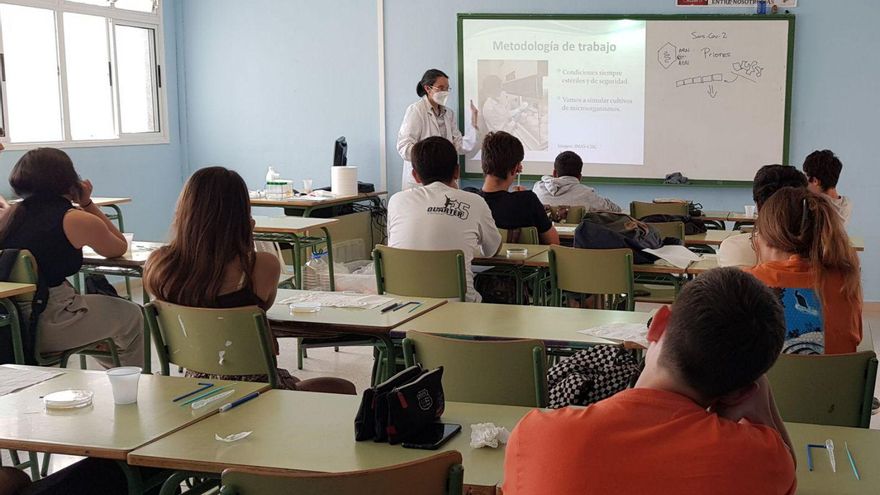
A total of 1,070 students from the third, fourth, fifth and sixth levels of Primary Education, as well as ESO (except the first level), Baccalaureate and Vocational Training will participate in the 47 practical workshops on science that will be held at Get Close to Science with the ULL in Arona. The City Council and the Scientific Culture and Innovation Unit, Cienci@ULL of the University of La Laguna includes this initiative within the framework of the third edition of the Program of activities for the promotion of business innovation in the municipality of Arona, ARN Innova.
two hour duration
The 41 scientific workshops will last two hours. Of a practical nature, they are prepared by research staff in training at the University of La Laguna and will deal with the areas of knowledge of marine biodiversity, pharmacology, physics, analytical chemistry, the environment, astrophysics, water purification, technology and microplastics.
They will take place between 7 and 18 in the morning and between the students of the Early Childhood and Primary Education Centers (CEIP) Parque de la Reina, El Fraile, Pérez de Valero, the Echeyde III School and the Secondary Education Institutes ( IES) Ichasagua, Las Galletas, Luis Diego Cuscoy and Los Cristianos. They will have 36 teachers, in addition to 14 young researchers from the ULL.
The ARN Innova Program is a project developed by the University of La Laguna and the Arona City Council, which aims to provide the population with the knowledge and tools necessary to foster creativity and interest in science and technology, especially in early ages, thus involving the educational community in the development of the aronero municipality.
Also, Get closer to Science with the ULL in Arona is a post-activity of the European Night of researchers from Macaronesia 2022 (MacaroNight), an initiative promoted by La Palma Research Center, the Sociedade Afonso Chaves-Associação de Estudos Açoreanos, the Fundación del Parque Ciencia Tecnológico de la University of Las Palmas de Gran Canaria, the University of Madeira and the General Foundation of the University of La Laguna. It is co-financed by the European Commission under the Marie Skłodowska-Curie Actions (MSCA), an initiative to promote scientific careers in Europe, which is part of Horizon Europe – the framework program for research and innovation of the European Union – and the Spanish Foundation for the Science and Technology (Fecyt), which helps to promote scientific culture.
In addition, in Tenerife it has the collaboration of the Canarian Agency for Research, Innovation and the Information Society of the Canary Islands Government (Aciisi), CajaSiete, the Santa Cruz de Tenerife City Council, the Cepsa Foundation, the Ministry of Education and Universities and the Canary Islands Military History Museum.
















